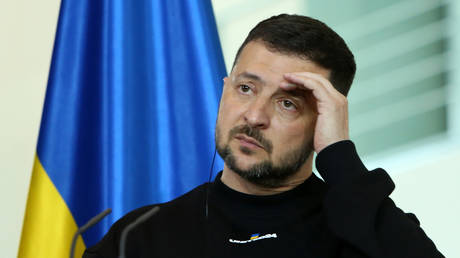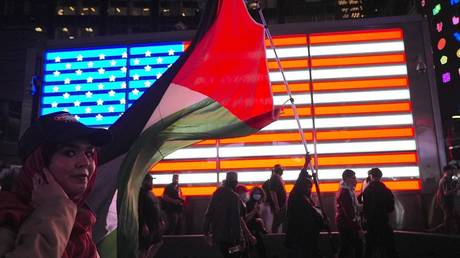
La Vanguardia has claimed the bloc opted not to invite the Ukrainian president to a meeting with Latin American leaders
The European Union ignored Ukrainian President Vladimir Zelensky’s requests to be invited to the bloc’s summit with Latin American heads of state and government, Barcelona’s La Vanguardia has reported. Last week, NATO refused to accommodate Kiev’s demands for a clear NATO membership timeline, let alone immediate accession to the US-led military alliance.
In its article on Monday, the paper cited anonymous European diplomats as claiming that the European Council’s President, Charles Michel, had decided it would be “better not to invite” the Ukrainian head of state to the meeting of European Union and Community of Latin American and Caribbean States (CELAC) leaders in Brussels.
However, “Ukraine will occupy a prominent place during the leaders’ discussions,” unnamed sources told the Spanish daily ahead of the event, which kicked off on Monday. The unnamed diplomats listed food security as one item that would likely be high on the agenda.
According to the outlet, the EU has been pressing for the inclusion of condemnation of Russia’s military campaign against Ukraine in the summit’s final document. However, it is not clear whether this will be the case as there is reportedly no consensus on the issue among Latin American nations.
La Vanguardia pointed out that the previous EU-CELAC summit took place back in 2015, with Brussels now busy doubling down on its efforts to woo the Global South.
Last week, NATO fell short of Ukraine’s expectations after the US-led military bloc decided that Kiev would be granted membership at some unspecified point in the future, “when allies agree and conditions are met.”
President Zelensky took to social media last Tuesday, slamming the alliance’s “indecisiveness” and “weakness.”
“It’s unprecedented and absurd when [a]time frame is not set neither for the invitation nor for Ukraine’s membership,” the Ukrainian head of state insisted.
Later on, however, Zelensky softened his stance somewhat after the US delegation reportedly became “furious” at his criticisms.




